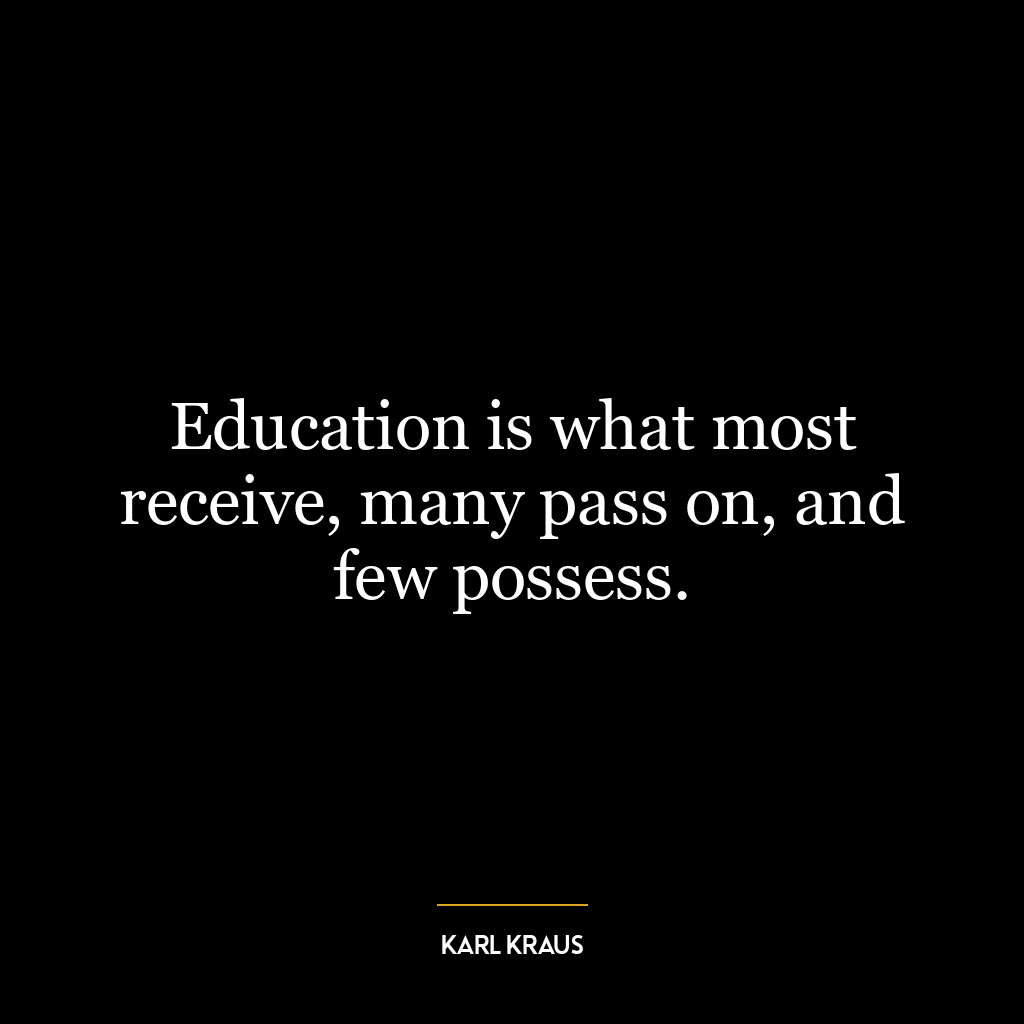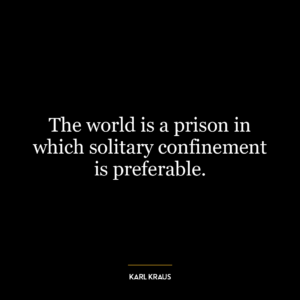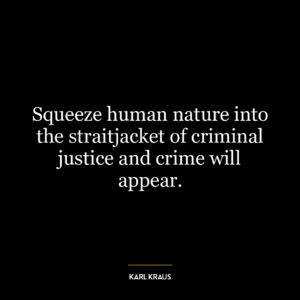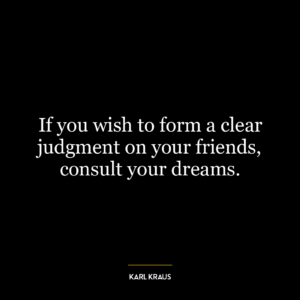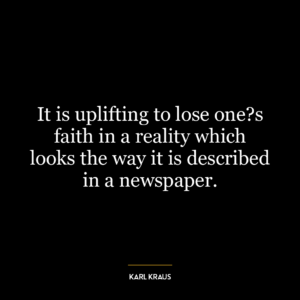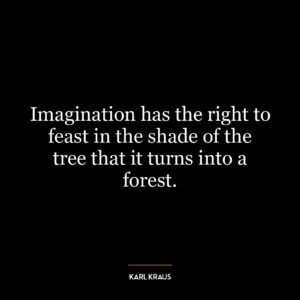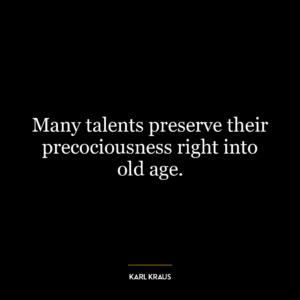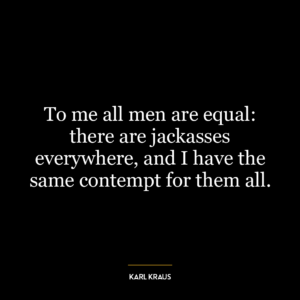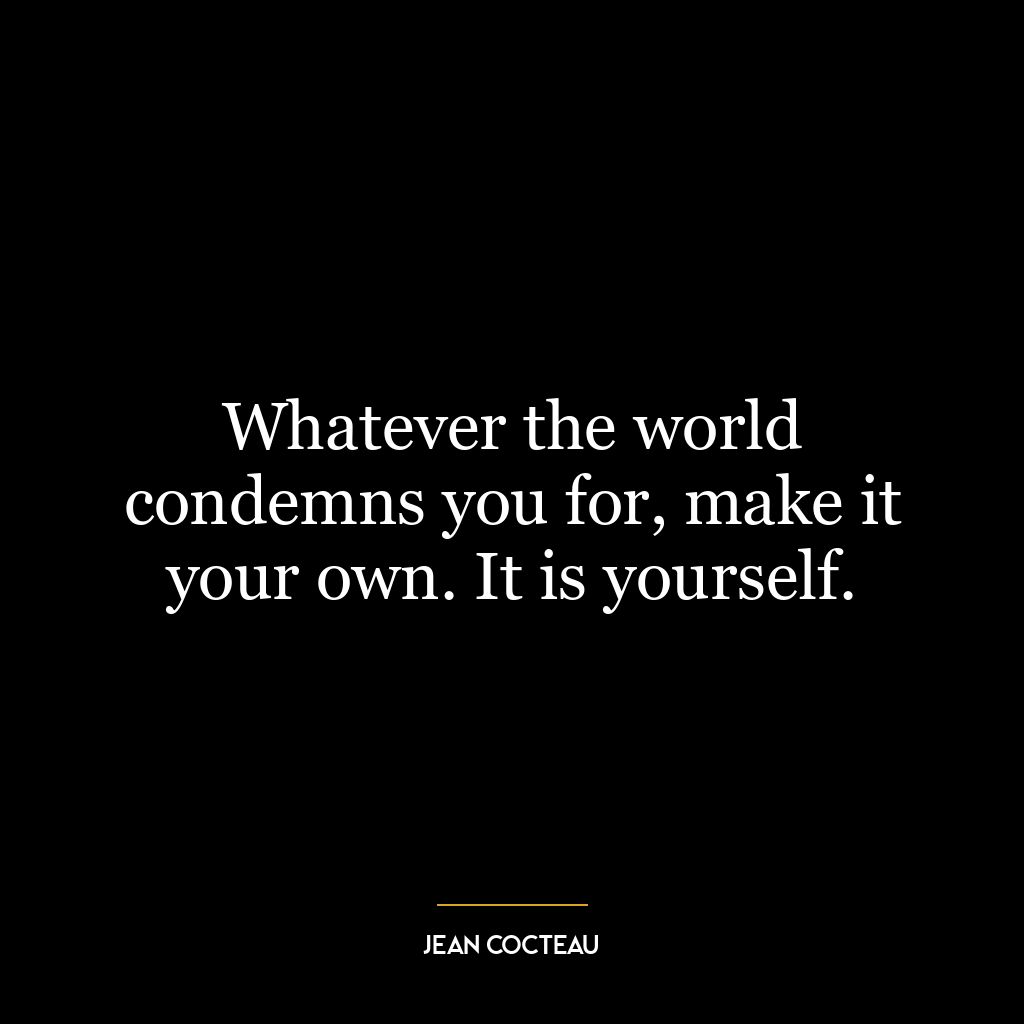Education is what most receive, many pass on, and few possess.
This quote highlights the different roles and levels of engagement people have with education. It suggests that while most people receive some form of education, only a portion of those people go on to pass on that knowledge, either as teachers, mentors, or parents. However, the quote suggests that only a few truly possess education, implying that only a select few fully grasp, internalize, and utilize their education to its fullest potential.
The phrase “most receive” refers to the fact that many people have access to basic education. They learn to read, write, and acquire basic knowledge about various subjects. However, receiving education passively does not equate to fully understanding or appreciating its value.
The term “many pass on” refers to those who share or transmit their knowledge to others. These could be teachers who pass on academic knowledge, parents who pass on life skills, or mentors who pass on professional expertise. However, even this act of passing on knowledge does not necessarily mean that they fully possess the depth and breadth of education.
The words “few possess” suggest that only a handful of people truly understand and appreciate the power of education. They not only acquire and share knowledge but also apply it effectively in their lives. They use their education to question, explore, innovate, and drive change. They are lifelong learners who constantly seek to expand their knowledge and understanding.
In today’s world, this quote could be interpreted as a call to action. With the rise of the internet and digital technology, information and knowledge are more accessible than ever. However, this does not automatically translate into a well-educated society. People need to learn how to critically analyze, interpret, and apply this information.
In terms of personal development, this quote could serve as a reminder to not just passively receive education, but to actively seek out knowledge, question existing beliefs, and apply what we learn in our lives. It is about being curious, open-minded, and engaged in the learning process. It is about not just acquiring knowledge, but also about understanding its context, implications, and applications. It is about becoming a lifelong learner who constantly seeks to learn, grow, and contribute to society.

